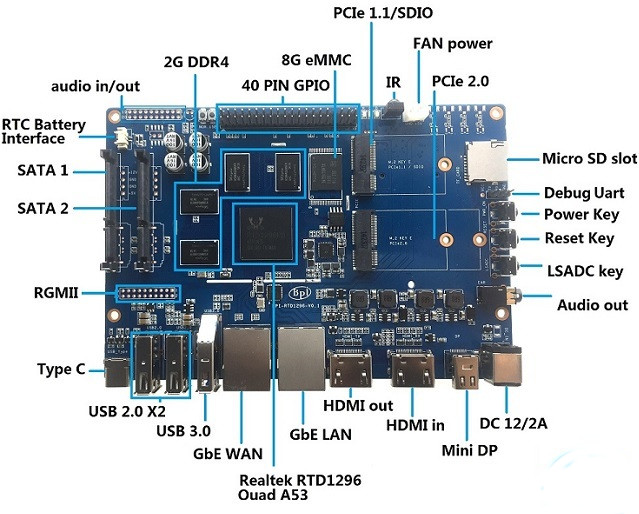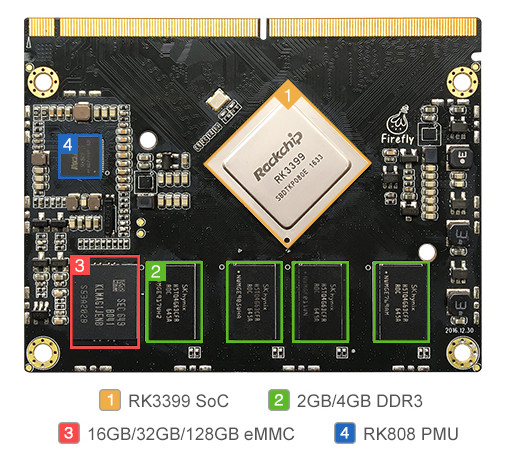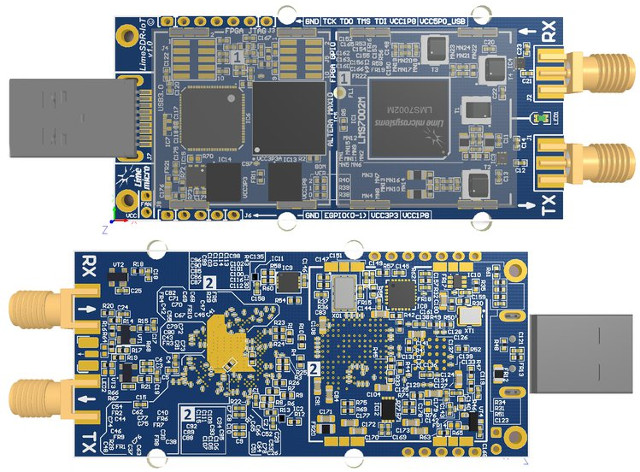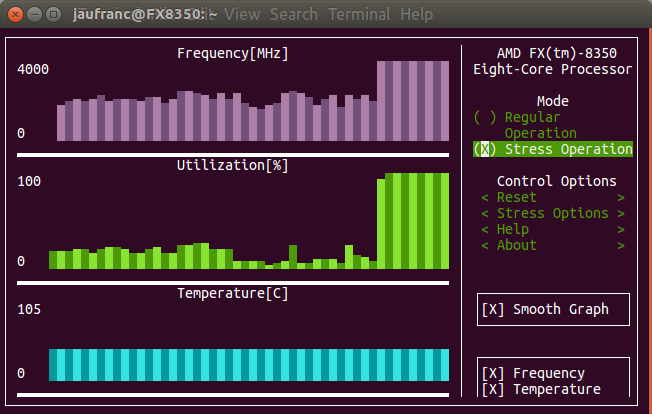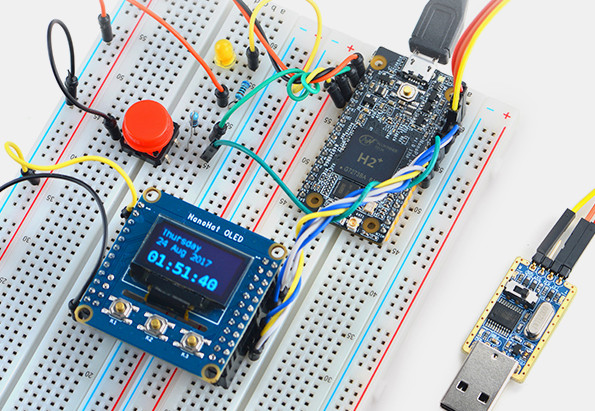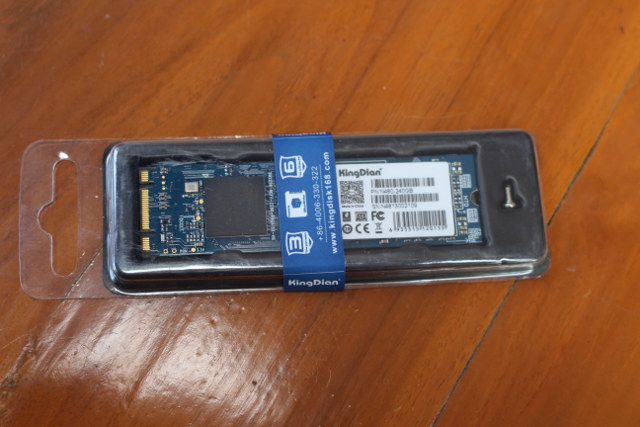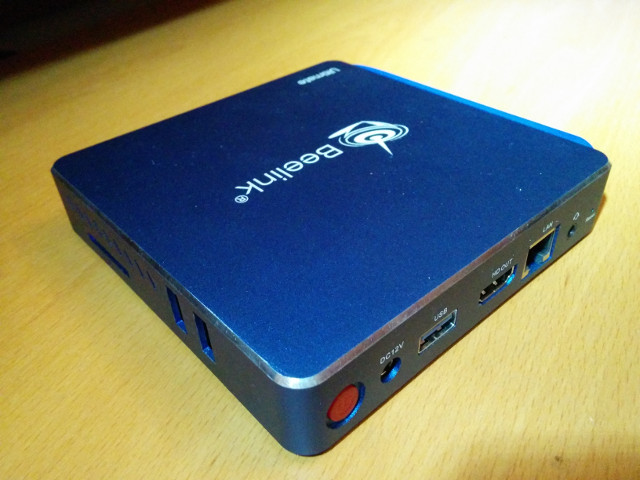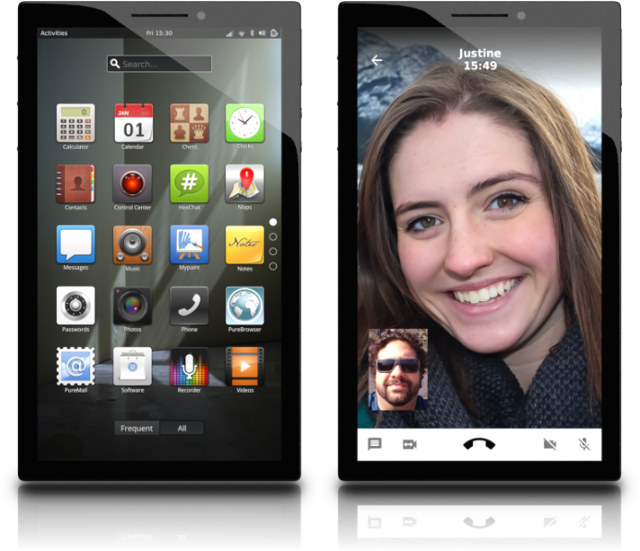I’ve reviewed several Realtek RTD1295 platforms with Zidoo X9S and Eweat R9 Plus, and I was generally impressed by the storage, Ethernet, and WiFi performance. 4K video playback was good too, as long you don’t have any 4K H.264 videos at 30 fps or more. Most devices would also run Android and OpenWrt side-by-side bringing the best of both operating for respectively apps & multimedia, and server functions. HDMI input – with PVR, time-shifting and PiP functions – was also a bonus, However so far, nobody cared to design a maker board powered by RTD1295 processor. Since then we’ve learned Realtek was working on RTD1296 processor with even more Gigabit Ethernet, USB 3.0, and SATA interfaces, and SinoVoIP has now designed a board based on the SoC called Banana Pi BPI-W2. Banana Pi BPI-W2 preliminary specifications: SoC – Realtek RTD1296 quad core Cortex A53 processor with ARM Mali-T820 MP3 GPU […]
Firefly Introduces RK3399 CoreBoard with up to 4GB RAM, 128GB eMMC Flash
Firefly-RK3399 is a development board powered by Rockchip RK3399, and the company behind the board has now launched a system-on-module called RK3399 Coreboard with 2 to 4GB RAM, 8 to 128GB flash, a PMIC, and a 314-pin MXM 3.0 edge connector exposing various I/Os. RK3399 CoreBoard specifications: SoC – Rockchip RK3399 hexa-core big.LITTLE processor with dual core ARM Cortex A72 up to 2.0 GHz and quad core Cortex A53 processor, ARM Mali-T860 MP4 GPU with OpenGL 1.1 to 3.1 support, OpenVG1.1, OpenCL and DX 11 support System Memory – 2GB or 4GB DDR3 Storage – 8, 16, 32 or 128 GB eMMC flash Carrier Board Interface – 314-pin MXM 3.0 edge connector with Ethernet, PCIe, HDMI 2.0, DP 1.2, MIPI DSI, eDP 1.3, S/PDIF, I2S, GPIO, USB, etc… signals Power Supply – 5V/3A input; RK808 PMIC Dimensions – 82 x 63 mm Weight – 24 grams The company provides support […]
LimeSDR Mini is a $135 Open Source Hardware, Full Duplex USB SDR Board (Crowdfunding)
LimeSDR open source hardware software defined radio was launched last year with the promise of integration with Ubuntu Snap Store allowing to easily download and install various radio implementations such as LTE, WiFi, Bluetooth, LoRa, etc… It was offered for $200 and up as part of a crowdfunding campaign, but Lime Microsystems is back on CrowdSupply with a cheaper and low end version aptly called LimeSDR Mini.LimeSDR mini specifications: FPGA – Intel Altera Max 10 (10M16SAU169C8G) with 16K Logic gates, 549 KB M9K memory, 2,368 KB user flash memory Storage – 4 MB flash memory for data; 2x128KB EEPROM for RF transceiver MCU firmware and data RF Lime Microsystems LMS7002M RF transceiver Tx & Rx SMA connectors Frequency range – 10 MHz to 3.5 GHz RF bandwidth – 30.72 Mhz Sample Rate – 30.72 MSps with 12-bit sample depth Power Output (CW): up to 10 dBm USB – 1x USB […]
The Stress Terminal UI (s-tui) is a Pretty CPU and Temperature Monitoring Terminal App
While it’s possible to do monitoring with tools like RPI-Monitor on headless or remote systems, top and htop are likely the commonly used tools to monitor CPU and process usage in the terminal. There’s now a new and different option with the Stress Terminal UI that display pretty charts for frequency, CPU usage, and temperature in the terminal, and as its name implies it can also stress the system. I’ve first installed it in my main computer running Ubuntu 16.04.2 as follows:
|
1 |
sudo pip install s-tui |
and then just started it
|
1 |
s-tui |
It took the screenshot above after enabling stress operation for a few seconds, and while frequency and CPU utilization in percent are updated properly, temperature is not, at least on my system. I had to enable “Smooth Graph” option to see any changes in the first two charts. I tried to run the app again with sudo, but still no temperature […]
$8 NanoPi Duo is a Tiny Breadboard Compatible Linux Board powered by Allwinner H2+ Quad Core SoC
It’s very easy to find breadboard compatible boards in the market with products based on Espressif chips such as NodeMCU or ESP32 boards, as well as OpenWrt board like Onion Omega2, or LinktIt 7688. However, it’s much more difficult to find powerful quad core boards in this form factor, but that’s exactly what FriendlyELEC has done with their NanoPi Duo board featuring an Allwinner H2+ quad core processor in a form factor slightly smaller than a Raspberry Pi Zero. NanoPi Duo specifications: SoC – Allwinner H2+ quad core Cortex A7 processor @ 1.2 GHz with Mali-400MP2 GPU @ 600 MHz System Memory – 256 or 512 MB DDR3-1866 SDRAM Storage – micro SD card slot, footprint for SPI flash Connectivity – 802.11 b/g/n WiFi (Allwinner XR819 module) with chip antenna, and u.FL/IPEX connector for external antenna USB – 1x micro USB OTG port Expansion headers – 2x 16-pin breadboard compatible […]
Testing KingDian N480 240 GB M.2 SSD in MeLE PCG03 Apo Mini PC
MeLE PCG03 Apo Apollo Lake mini PC supports M.2 80mm SSD’s, but at the time of the review I did not have such accessories, so I only tested the computer with its 32GB eMMC flash and external USB drives. I’ve now received Kingdian N480 240GB SSD courtesy of GearBest, so I’ll install it in the mini PC, test it in Windows 10, and install Ubuntu 16.04. KingDian N420 M.2 SSD Hardware Installation I’ve received a big carton box for the SSD, but finally the retail package is minimal. You’ll find the SSD and a screws in the package. You’ll note the device supports both M.2 Key B and Key M sockets. I’ve already explained how to open MeLE PCG03 Apo, basically loosen 6 screws, and then I just had to insert the SSD with the right orientation (check the 4 / 5 pins on each side), and use the screw […]
Beelink AP34 Ultimate Fanless mini PC Review with Windows 10 and Ubuntu
The AP34 Ultimate combines the passive cooling of an Apollo Lake N3450 SoC with 8GB of RAM and 64GB of storage in a small box form-factor mini PC. Together with the device comes a pair of HDMI cables, a power adapter, VESA mount with screws, and a couple of leaflets covering basic information. Not only does this device have three USB 3.0 ports, full size SD card, Gigabit Ethernet, headphone jack and HDMI port, it also has a (vacant) M.2 slot allowing additional storage with the full specification being: although there was no included remote control. The device comes pre-loaded with activated Windows 10 Home 64-bit and plenty of available free space at (initially before updates) just over 43GB. The Windows performance is unremarkable and the reason for this is obvious looking at the basic benchmarks. The reason being that the eMMC is slow which is disappointing for an ‘ultimate’ […]
Purism Librem 5 Open Source Linux Smartphone Focuses on Privacy (Crowdfunding)
Purism is computer manufacturer founded in 2014 whose mission is to “provide the highest quality hardware available, ensuring the rights of security, privacy, and freedom for all users”, and so far, they’ve delivered several Intel Core i5/i7 laptops running their PureOS Linux distribution based on Debian with an emphasis on privacy protection. The company has now launched a crowdfunding campaign on their own website to develop and manufacture Librem 5 Linux smartphone with the same philosophy. The phone will use open source software even for the GPU, so the company currently selected i.MX6 for the project since they can use etnaviv open source driver for the Vivante GPU, but they hope to switch to the more powerful i.MX8 processor for the final design, which explains why the hardware specifications are not set in stones yet: SoC- NXP i.MX6/i.MX8 CPU with Vivante GPU System Memory – 3GB LPDDR3 Storage – 32GB […]


